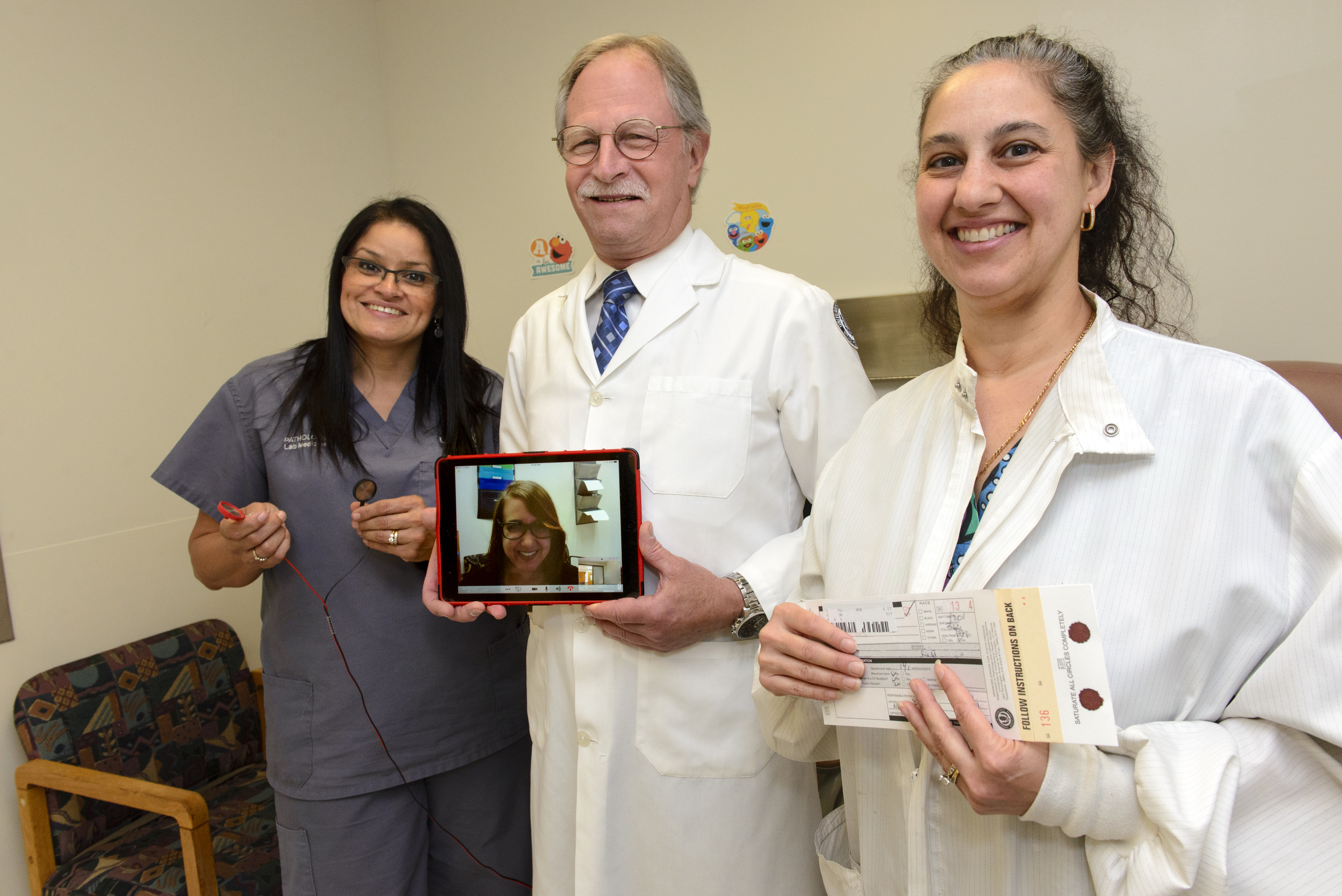While screening of newborns for cystic fibrosis is done in every state, in Connecticut it’s done differently than most.
That’s because UConn Health, which screens seven of 10 infants born in the state, is involved in a unique collaboration: UConn Health screens the newborns, the Connecticut Children’s Medical Center provides timely clinical intervention, and the University of Florida Health provides genetic counseling by way of telemedicine.
Cystic fibrosis (CF) is a progressive genetic disease that causes persistent lung infections and over time, hinders the ability to breathe. A thick mucus buildup forms in the lungs, making patients prone to infections, lung damage, and respiratory failure. In the pancreas, enzymes are not released, inhibiting the body’s ability to digest food and absorb nutrients.
Early diagnosis and treatment can add years to life.
“Treating at birth is very important to ensure optimal outcomes through adulthood,” says Sidney Hopfer, professor in the Department of Pathology and Laboratory Medicine. “The complications associated with CF are progressive, so you have failure to grow and failure to thrive.”
Hopfer’s colleagues in UConn Health’s Clinical Laboratory receive a blood sample taken within days of birth and screen for immunoreactive trypsinogen, a chemical made by the pancreas. If the concentration is high, they analyze the infant’s DNA for gene mutations specific to CF.
Generally the conclusion is that if a single mutation is found, the child is a carrier but does not have CF. But if two mutations are found — meaning the infant inherited the gene from both parents — the child is very likely to have CF. Since the genetic screening is not able to detect all mutations that can cause disease, a sweat test is recommended in either case to ensure that there is not an undetected second mutation. In the sweat test, medical providers induce perspiration in the infant and check for salt concentration, which is elevated in individuals with CF.
The sweat test is considered the most reliable way to diagnose CF. And it’s at this stage when the process becomes unique.
On the same visit as the sweat test, parents have a video consultation with a genetic counselor from the UF Health. This happens in a private room and is provided at no cost to the patient. This offering is made possible by a grant from the Cystic Fibrosis Foundation.
“There are two major parts to my job with newborn screening,” says Heather Stalker, a UF certified genetic counselor. “One is to give that family a clear idea of why they’re there…The second is to address the fact that, the CF gene is in your family, and that increases the risk for people in your family, potentially, to have a baby with cystic fibrosis, and these are the people in the family who need that information.”
UConn Health and Connecticut Children’s Medical Center represent one of four clinical sites in the country in partnership with the University of Florida. Connecticut’s screenings account for more than half the screenings done under those partnerships.
UConn Health has been screening newborns for CF since 1993, but those screenings weren’t required by state law until 2009. The collaboration with the University of Florida started in 2014.
“With the addition of the genetic counseling piece, our program has significantly decreased the time to sweat test and ultimately CF diagnosis,” says Dr. Melanie Sue Collins, associate director of the Central Connecticut Cystic Fibrosis Center at the Connecticut Children’s Medical Center.
Another strength of the collaboration is the instantaneous communication between lab and clinic.
“We work in close contact with each other with regular phone calls, texts, emails, and in-person meetings to maximize the efficiency and effectiveness of the program,” Collins says.
Hopfer says this approach is very well received by patients, and that most parents comply with the sweat test recommendation.
“We have all the pieces: easily obtainable, the patients don’t have to travel far, there is coordination between the lab/CF Center and primary care physician regarding testing and genetic counseling,” Hopfer says. “Clearly that’s something that, in my opinion at least, should be done nationally.”



